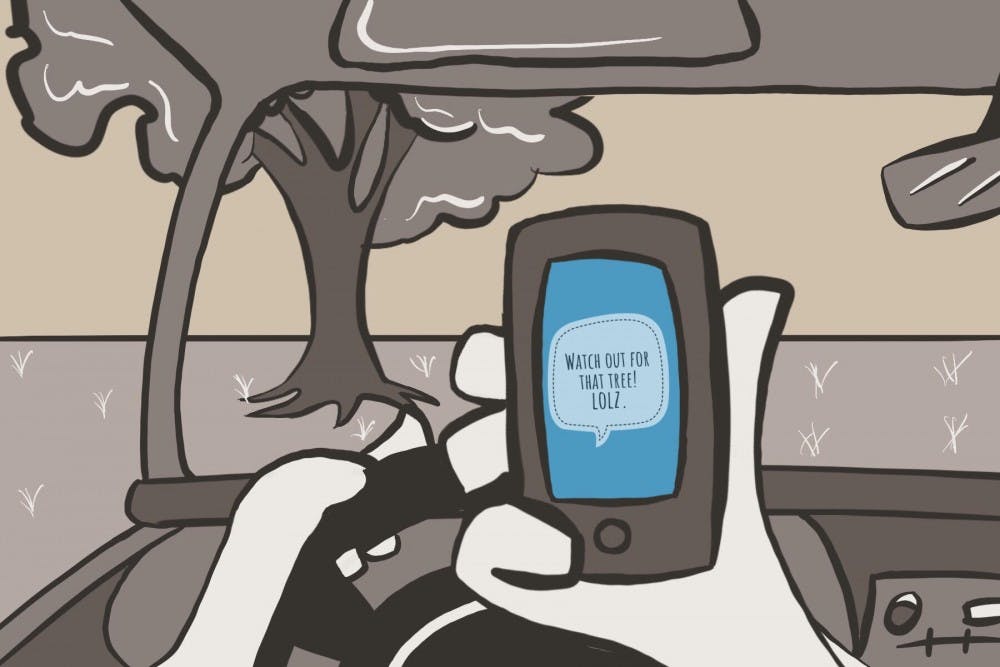Distracted driving can be just as dangerous as drunk driving. Texting while driving, for example, is just as dangerous as getting behind the wheel after drinking four beers, according to the Brain Injury Society. Additionally, you increase your chances of crashing by 23 percent when texting while driving.
An average text sender takes their eyes off the road for 23 seconds to send a message, which is more than enough time for conditions on the road to change.
As students growing up in a generation where phones are constantly being used, we have to be aware of how dangerous distracted driving can be.
According to the NHTSA, 3,477 people were killed and 391,000 people were injured in motor vehicle crashed involving distracted drivers in 2015. In 2013, nearly 18 percent of car crashes in which someone was injured involved distracted driving.
Pedestrian deaths have also gone up in the last several years, a statistic which many attribute to distracted driving.
There are three types of distracted driving. The first is visual, which means taking your eyes off the road. The second is manual, which involves taking your hands off the wheel and the third is cognitive, which is taking your mind off driving.
Focusing on the road while driving is extremely important. Nearly 1.3 million people die in road crashes every year, making it the ninth leading cause of death.
Along with Montana and South Carolina, Arizona is one of the only states without a distracted driving law. If distracted driving really is as dangerous as drunk driving, then it would make sense to ban it.
The issue with distracted driving laws is that they can be very difficult to enforce. They place an extra burden on police officers, who would have to watch for people who are on their phones while driving, and some believe that it is not the business of the state to regulate this.
There are a few laws that have been passed to bar distracted driving in the state. Arizona has been able to ban the use of cell phones while driving for school bus drivers and text messaging is banned while driving in the city of Phoenix.
However, there is currently no statewide law prohibiting distracted driving.
Senate Bill 1049 would have banned texting while driving but it was killed earlier this year. There have been other attempts to pass a ban before but none have been successful.
At this point, it doesn't seem that Arizona will fully ban distracted driving anytime soon, which is unfortunate for the safety of its citizens.
Recently, however, a bill was passed that restricts texting by teen drivers for the first six months that they have their license.
“At least it’s a beginning,” Alberto Guiter, director of the Governor’s Office of Highway Saftey, said. “(It is intended) to send a message to young people who don't have the experience. The last thing they need is to have an actual cell phone or to be text messaging while driving.”
With the number of accidents involving distractions growing, it would be a good idea to join the rest of the country by enacting a statewide distracted driving law.
Students should be concerned about distracted driving and the laws that prevent it. The use of cell phones and text messaging while driving is not safe, and it leads to thousands of deaths each year which could be avoided if distracted driving laws were in place.
Reach the columnist at morganbwillis@gmail.com or follow @Morganwillis37 on Twitter.
Editor’s note: The opinions presented in this column are the author’s and do not imply any endorsement from The State Press or its editors.
Want to join the conversation? Send an email to opiniondesk.statepress@gmail.com. Keep letters under 500 words and be sure to include your university affiliation. Anonymity will not be granted.
Like The State Press on Facebook and follow @statepress on Twitter




